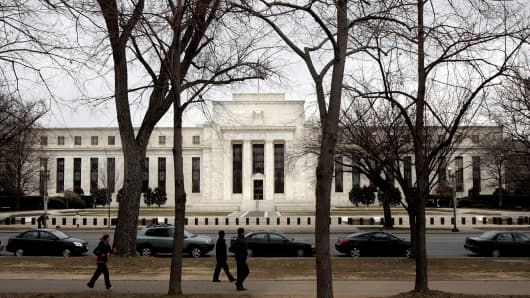U.S. Treasury and Federal Reserve officials are monitoring the liquidity of bond markets after warnings from banks and institutional investors that the system has been weakened dangerously by new regulations.
According to people familiar with the matter, government officials are reviewing market data to assess whether there is any substance to financial industry arguments that rules designed to make markets more robust have had the opposite effect.
(Read more: US yields fall on perception of modest Fed tapering)
Investors and banks have delivered warnings – including in a July presentation to the Treasury – that new capital rules and the Volcker rule that prohibits proprietary trading at banks are sapping liquidity from the wider bond market, and that the negative effects have been masked by the Federal Reserve's unprecedented bond purchases under quantitative easing.
"Regulations have created multiple constraints likely to curtail liquidity when it is really needed," said a presentation from the Treasury Borrowing Advisory Committee, a group whose members range from JPMorgan to Pimco. It said there was a "potential for significant dislocation when investor flows reverse".




